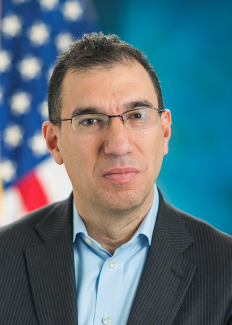As hospitals, systems and practices gear up to make needed adjustments under MACRA, the Centers for Medicare & Medicaid Services’ top official advises that “the best way to go fast is to start slow.”

Andy Slavitt, acting administrator for CMS, spoke at the CAPG Colloquium in the District of Columbia on Thursday morning, saying that health providers have the option of being a “pace car” for the transition to care under MACRA, or they can choose to go full speed and leave many of their peers in the dust.
“This is not gonna happen overnight,” Slavitt said. So if you plow ahead “make sure you create a path” for those who may still be a bit behind, he said. He said that providers should expect to see in the next 18 months a “proliferation of opportunities” for innovation at either pace.
The industry is still awaiting CMS’ final rule on MACRA or the Medicare Access and CHIP Reauthorization Act, and Slavitt declined to offer even a hint of when that document will be released. In the meantime, Slavitt and CMS will partner with CAPG to produce a series of webinars to help healthcare leaders get ready for the changes in care coordination that MACRA will bring.
The law and the alternative payment models it focuses on were the main focus of the colloquium, titled “Building Successful Value-Based Payment Models.” Slavitt also touched on the Medicare ACO programs--which has had its share of ups-and-downs--and the Medicare Advantage program.
For those who may have missed the application periods for the Medicare Shared Savings Program or the Next Generation ACO program, Slavitt said CMS is looking into ways that it can reopen the applications. These programs will have to be retrofitted to MACRA’s specifications, he said, so it’s a matter of figuring out exactly when and how it is best to reopen the application process. Each model is being examined to see if it can be retooled as an advanced alternative payment model under MACRA, he said.
Slavitt added that another potential solution is to create additional payment models for providers. He said that CMS hears a number of proposals--a recent example being bundled payments for orthopedic joint surgeries--and that the “healthcare system is diverse enough” to allow for more models.
“That means flipping our agency into product development,” he said, a prospect Slavitt said he finds exciting.
Another issue that Slavitt said that will be a major one for him and his successor is the rising costs of prescription drugs. He said the healthcare industry is presented with the “false choice” between price comparability and innovation, and that it is unfair that some patients may not have access to the cutting-edge treatment options that are coming to the market.
“This will be one of the top two or three issues for my successor,” Slavitt said. “And for their successor it will be No. 1.”
Pharma industry leaders are aware of the problem with soaring drug costs and symphathize, he said. The solution, Slavitt said needs to include price transparency and clear explanations to patients as to why such drug costs go up.